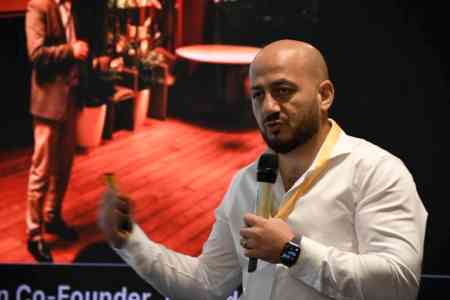


ArmInfo. . Criminal cases against businesses have been put on a conveyor belt, according to Vahram Mirakyan, co-founder and president of the Mantashyants Entrepreneurs Club. To address this issue, the club has developed a legislative initiative to protect entrepreneurs' rights when dealing with the State Revenue Committee (SRC) and the Investigative Committee (IC). The proposed measures aim to prevent the seizure and illegal confiscation of property as a means of pressure on business, and to establish fair and predictable mechanisms for resolving tax and economic disputes.
According to Arsen Sardaryan, a member of the club and a lawyer at the LSA law firm, the proposed measures can be divided into three groups. Firstly, "Mantashyants" considers the current practice of initiating criminal prosecution for failure to meet tax obligations in the amount of 10 million drams to be controversial. "We consider this state of affairs problematic and propose to link the amount of this sum to the company's turnover," Sardaryan said.
Secondly, the lawyer highlights the abuses of arrest in economic cases involving business owners. "We propose to introduce a guarantee so that this practice is regulated at the legislative level," he continued.
The third important issue is that in such cases, during searches, the seizure of technical equipment as material evidence is widely used, which sometimes deprives the business entity of software for a long time, paralyzes its activities, and sometimes partners. "The legislative solution we propose will also exclude such abuses," he noted.
Vahram Mirakyan, the president of the club, notes that today the initiation of criminal cases against businesses has become a lever of pressure for the tax system on entrepreneurs. "Here, no one focuses on honesty or proportionality, it is just a lever, often used on the basis of suspicion, without proper justification. And why is there no justification? Because the State Revenue Committee often loses when lawsuits are brought against the committee," Vahram Mirakyan said.
In practice, it looks like this. "Tax officials visit a company, study some topic, conduct a preliminary calculation and, based on it, conclude that the business has allegedly concealed, say, 200 million drams in taxes. They inform the entrepreneur about this. He objects, disagreeing with the calculations. In response, the State Revenue Committee says: "okay, we will pass this information to the investigative bodies." Then arrests begin - the director, chief accountant and other employees. Then the business is compelled to file a lawsuit. The trial can last a year or two or more, and in the end it turns out that the tax authorities' calculations were wrong: instead of 200 million in unpaid taxes, the amount turns out to be, say, 20 million drams. And there are many such examples."
According to the head of the entrepreneurs' club, over the past two years about 2,000 criminal cases have been initiated against businesses in Armenia, which is an average of 1000 cases per year. At the same time, the State Revenue Committee loses about 80% of these legal battles. "For comparison, in the United States, whose economy is 1000 times larger than ours, about 2,500 - 3,000 criminal cases are initiated annually," he noted. Thus, the State Revenue Committee of Armenia abuses this institution, since there is no mechanism of responsibility, that is, when the State Revenue Committee inspectors make a mistake in the initial calculations, no one holds them accountable.
As a result, this leads to the fact that many business projects are curtailed. There are examples when an investor, after the first financial investment and the initiation of a criminal case, decides to relocate his investments to neighboring Georgia. It can be said that the State Revenue Committee does not worry about the situation in the country's economy, and the main goal of the tax authorities is to "extort" money, no matter by what means. As a result, the policy towards business turns into tax racketeering, Mirakyan continued. He does not see any political subtext in the actions of the tax authorities. Rather, there is a desire to ensure the "budget plan" established for the State Revenue Committee.
In this regard, the Club proposes to amend Article 290 of the Criminal Code, establishing that in order to initiate criminal prosecution, a fixed monetary threshold should not be determined, but an amount equal to 10% of the company's turnover over the past three years, but not less than a certain established threshold.
The second point of the initiative concerns the grounds for arresting entrepreneurs who have committed economic crimes. "If the founder or director of the company, who is accused of tax evasion, obviously has the financial means to compensate for the alleged damage, and at the same time there is no violation of the preventive measure on his part, then his arrest should be excluded. That is, arrest can only be applied when there is reliable data that this person exerted pressure on witnesses," Arsen Sardaryan clarified.
The club representatives propose to solve the third group of issues in the following way: clearly record with material evidence what contains information about the crime. But do not confuse the information carrier with the knife with which the murder was committed. "If there is a need to remove this information, then only on the basis of a court decision, by downloading it to media. And if there is no way to extract the information contained in the computers, the equipment must be returned within a maximum of 3 days, that is, abuse in this area must be excluded," the lawyer explained. The draft law has already been submitted for consideration to the RA NA Commission on Economic Affairs. The head of the Commission, Babken Tunyan, has already spoken out in favor of revising the norms, emphasizing that, in general, he agrees with the business community.